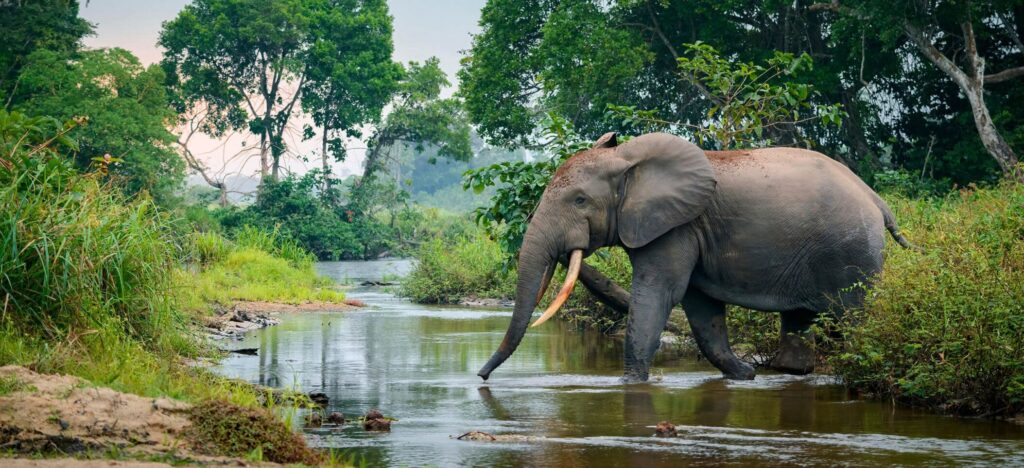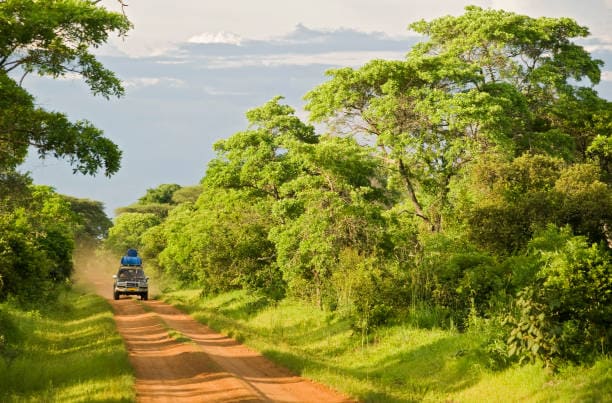Travel to Congo can be an exciting yet challenging endeavor. As travelers prepare for their journey, understanding the expenses involved is crucial. Insights from Felicite’s YouTube channel, CongoTalks243, offer valuable information on costs and budgeting for this adventure.
Flight and Accommodation Costs
When planning your travel to Congo, flights and accommodation are significant factors. Felicite’s flight from Paris to Kinshasa, for instance, cost 615 Euros. For accommodation, Airbnb in Kinshasa for 11 nights amounted to 351 Euros. Additional expenses include a COVID-19 test for 45 USD and an airport tax of 55 USD, reflecting typical costs for a Congo trip.
Transportation Costs
In Kinshasa, transportation expenses vary, with prices ranging from 500 to 2500 Congolese francs depending on the distance traveled. Felicite’s round trip from Kinshasa to Kikwit cost 55 USD. Budgeting for transportation is essential when planning your travel to Congo to ensure a smooth journey.
Daily Expenses and Budgeting Tips
Daily expenses in Congo can add up, with Felicite’s trip totaling over $1,500, including transportation, dining, and other activities. To save on costs, consider staying with family or friends, eating at local markets instead of upscale restaurants, and planning trips efficiently to reduce transportation costs.
Travel Tips for Congo
Travel to Congo requires awareness of safety concerns. It’s advisable to hire local guides and ensure vaccinations, such as Yellow Fever, are up-to-date. These precautions can help mitigate risks associated with traveling in this unique destination.
Past Conflict and Emerging Opportunities
Historically, Congo has been associated with conflict and instability, notably the “World War” of Africa. The region, once a symbol of violence and exploitation, is now emerging from its tumultuous past. Much like Angola or Vietnam, Congo is transitioning into a land of business opportunities and adventure tourism. Significant foreign interest is evident, with investors from Asia, Europe, and America actively exploring this evolving region.
Tourism Evolution
Congo’s status as a mainstream tourist destination has been limited since the 1960s. Yet, areas around Kinshasa, Brazzaville, and the Congo River are gaining attention for their incredible scenery and wildlife. Unlike the troubled Great Lakes region, these areas offer distinct and rewarding experiences for travelers.

Infrastructure Improvements
Recent investments, particularly from Chinese sources, have improved roads and train links in Congo. The growing accessibility is reflected in the increasing number of airlines serving the region, signaling positive changes for those planning to travel to Congo.
Kinshasa’s Growth and Travel Challenges
Kinshasa, the capital, is experiencing rapid growth, with around 20 airlines serving the city. However, utilities and services are struggling to keep pace. Internet access is now widely available, though traveling in some regions, such as near Goma and Virunga Park, requires careful planning due to safety concerns and rebel activity. Certain areas, like Kisangani, are relatively safer and quieter.
River Journeys and Tourism
The Congo River is renowned for offering one of the world’s greatest river journeys. River cruises, jungle trekking, and safaris are becoming more accessible as new lodges and hotels are established. This remarkable river provides a unique adventure for those traveling to Congo.
Hotel Accommodations and Travel Seasons
In Kinshasa and Brazzaville, hotel prices range from $60 to $300, with international chains like Radisson and Kempinski offering luxury accommodations. Visas for Congo have become easier to obtain since 2008, though challenges remain for certain regions. The best time to travel to Congo is from June to December, when the weather is cooler and wildlife is more active.
Brazzaville: A Comprehensive Guide
Brazzaville, the capital of the Republic of Congo, offers a more relaxed atmosphere compared to Kinshasa. Named after Italian explorer Pierre Savorgnan de Brazza, it is known for its vibrant nightlife and friendly locals, making it a safer environment for visitors compared to its bustling neighbor.
Getting Around and River Travel
In Brazzaville, taxis from the airport to various parts of the city cost around $4 (2000 CFA), while local rides are approximately $2 (1000 CFA). The Congo River, central to local culture, offers both opportunities and challenges. Boat trips range from $10 for short journeys to over $200 for extended trips. For the adventurous, purchasing a traditional pirogue (boat) can be an option, though proper documentation and guides are necessary.
Travel Beyond Brazzaville
From Brazzaville, travel to destinations like Pointe Noire, Ouesso, and beyond is possible via various transport modes. Owando and Oyo, picturesque villages, offer forest lodgings for around $80-$120 per night. Odzala National Park, managed by African Parks Network, provides a high-end safari experience, though budget accommodations are scarce.
Exploring Further North
In Ouesso, Ndoki National Park offers wildlife viewing for around $100. Returning to Brazzaville can be challenging, often requiring a return journey by road or a flight. Planning and preparation are key when traveling to Congo, especially when venturing into remote areas.
Eating and Drinking
Brazzaville offers diverse dining options, from affordable local eateries to upscale restaurants. Mami Wata provides excellent ambiance and river views, while Lampadere and Espace Kubia offer local nightlife and vibrant music scenes. In Pointe Noire, Villa Madiba is a top luxury choice, with prices starting at $380 per night.
Travel Tips for Congo
Traveling independently in Congo can be challenging. Arranging tours and transport through reputable operators is advisable. For a smoother experience, consider using travel services that assist with transportation and safety.
Kinshasa: A City of Contrasts and Adventure
Kinshasa, despite its chaotic reputation, is a city full of life and remarkable contrasts. Known for its vibrant culture, music, and history, Kinshasa offers a dynamic experience unlike other African cities.
A Cultural Hub
Kinshasa’s rich musical heritage and proximity to a Bonobo reserve add to its appeal. Accommodations range from luxurious options like the Kempinski Residence to budget-friendly choices like Hotel Tex, catering to diverse needs.
Navigating Kinshasa
While Kinshasa is lively, it presents challenges, especially at night. Unlike Brazzaville, which is safer for nighttime walks, Kinshasa’s vibrant scene is worth exploring despite its safety concerns.
River Adventures and Natural Wonders
The Congo River offers both challenges and opportunities for adventurers. The public ferry to Kisangani provides a glimpse into local life, while the river remains ecologically vibrant, with species like the Goliath Tigerfish.
Conservation and the Elusive Okapi
The Okapi, a rare species found in the Ituri Forest, highlights Congo’s conservation efforts. The Black Lake (Mai Ndombe) offers unique fishing experiences, showcasing the region’s untouched natural beauty.
The Great Lakes Region and Beyond
Beyond Kinshasa, the Great Lakes region features dramatic landscapes and active volcanoes. While the area has experienced conflict, it is increasingly accessible, requiring caution and informed travel planning.
Practical Travel Tips
Traveling in Congo necessitates vigilance and preparation. Staying aware of safety guidelines and local news is crucial. For those exploring beyond Kinshasa, various travel options, including flights and ferries, are available.
Is the Congo Safe?
Despite its history, Congo offers a relatively safe travel experience compared to other African destinations. Kinshasa and Brazzaville are safer than cities like Johannesburg and Nairobi, with the Congo’s national parks providing pristine wildlife experiences.
Visas and Airport Hassles in Brazzaville
Brazzaville’s new airport, built with Chinese collaboration, impresses with its modern design. However, the arrival process may involve requests for gifts or cash from officials. Visas are relatively easy to obtain with proper documentation.
Visas and Airport Hassles in Kinshasa
Kinshasa’s airport, though less developed, sees significant traffic. Expect thorough scrutiny and occasional requests for bribes. Arranging airport pickup and having cash on hand for various fees is advisable.
Health Considerations
Travelers to Congo should consult healthcare providers before their trip. Malaria medication, such as Doxycycline, Malarone, or Artemether/Lumefantrine, is essential. Travel insurance is strongly recommended, and embassy assistance can be valuable in emergencies.
Getting to and Around Congo
Most international airlines fly into Pointe Noire, Brazzaville, or Kinshasa. Booking in advance is recommended, with roundtrip fares comparable to other continents. For domestic travel, ECAir and Korongo Airlines offer reliable options, while new airlines and charter flights are available.
Road and River Travel
Traveling within Congo presents challenges, particularly in unpaved and unsafe regions. The Congo River journey requires time and patience, with overland travel fraught with risks. Utilizing Congolese liaisons can enhance safety and minimize harassment.
Conclusion
Travel to Congo offers incredible experiences but requires careful planning and consideration of safety, health, and logistics. With its rich cultural heritage and untamed landscapes, Congo provides a unique and exciting adventure compared to more commonly visited African regions.

